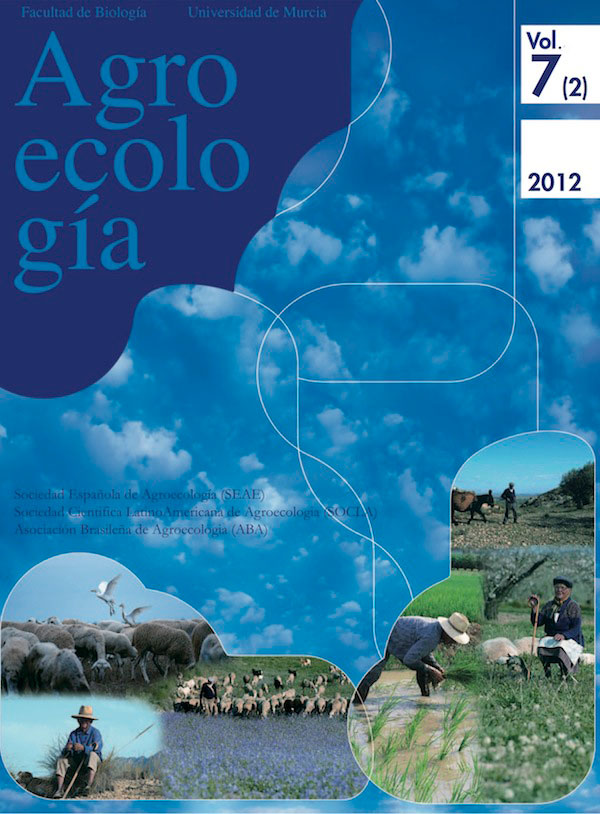Apicultural systems as a design tool for agroecological methods of endogenous development in Brazil
Abstract
Applying of Agroecology to the field of apicultural systems demands a methodological pluralism, that orchestrates findings of both Natural and Social Sciences, and that links the local empirical knowledge,the peasant and indigenous knowledge,with the scientific knowledge.This paper characterizes the process of agroecological research on beekeeping systems being developed jointly by the Institute of Sociology and Peasants Studies (ISEC) / University of Córdoba (UCO) and the Temperate Climate Unit of the Brazilian Agricultural Research Company (EMBRAPA): the first in Andalusia, Spain, and the second in Rio Grande do Sul, Brazil. Research is carried out on four different production experiences: a peasant family agriculture, a settlement of agrarian reform, an afro descendant community ‘quilombola’ and a guarani native village. The systems are managed in contexts of agroecological farming, but include africanized honeybees and native stingless bees under integrated production into crops and trees. Under a sociological dimension of the processes of accompanying the social movements, dynamics of participatory action research are been generated, following the farmers guidelines, seeking to change reality through ways of endogenous development and of institutionalization the dialogue of knowledge.Downloads
Las obras que se publican en esta revista están sujetas a los siguientes términos:
1. El Servicio de Publicaciones de la Universidad de Murcia (la editorial) conserva los derechos patrimoniales (copyright) de las obras publicadas, y favorece y permite la reutilización de las mismas bajo la licencia de uso indicada en el punto 2.
2. Las obras se publican en la edición electrónica de la revista bajo una licencia Creative Commons Reconocimiento-NoComercial-SinObraDerivada 3.0 España (texto legal). Se pueden copiar, usar, difundir, transmitir y exponer públicamente, siempre que: i) se cite la autoría y la fuente original de su publicación (revista, editorial y URL de la obra); ii) no se usen para fines comerciales; iii) se mencione la existencia y especificaciones de esta licencia de uso.
3. Condiciones de auto-archivo. Se permite y se anima a los autores a difundir electrónicamente las versiones pre-print (versión antes de ser evaluada) y/o post-print (versión evaluada y aceptada para su publicación) de sus obras antes de su publicación, ya que favorece su circulación y difusión más temprana y con ello un posible aumento en su citación y alcance entre la comunidad académica. Color RoMEO: verde.





